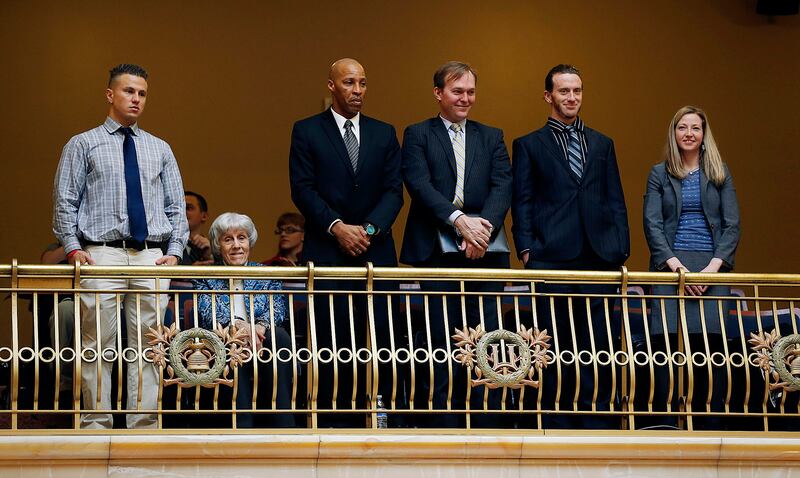SALT LAKE CITY — For Mikhail Kotlov and Branden Jenkins, it was heroin.
For Cedric Willis, it was cocaine.
All three men were arrested within the first two weeks of Operation Rio Grande, the multiagency effort to clean up the troubled neighborhood surrounding the downtown homeless shelter. The men were among hundreds swept off the street and prosecuted on drug charges.
"I definitely hit rock bottom," Kotlov said of the day he was arrested, adding that he was even more upset to find out he wouldn't be released from jail immediately like he had been in the past. Instead, he went through withdrawal behind bars.
While none of the men were happy about being placed into handcuffs and booked into the Salt Lake County Jail, they say their lives are starkly different now from when they were living on the streets about six months ago.
Kotlov, Jenkins and Willis wore fresh haircuts, suits and ties Thursday as they visited the state Capitol with Salt Lake County Mayor Ben McAdams to thank the Utah Legislature and other Operation Rio Grande supporters for helping them on a path toward sobriety.
"Nobody likes to get arrested," Willis said. But when he was given the opportunity to enter Operation Rio Grande's specialty drug court, receive treatment at Odyssey House and now have a chance to join the county's new sober living program, Willis said that arrest gave him "a new lease on life."
Jenkins said he, too, would still be on the streets had he not been picked up during the sweep and given the opportunity for drug treatment.
"The officers who arrested me that day were like, 'You're going to thank me for this later," Jenkins said. "I didn't believe it, but I do now."
Kotlov said he's now rekindled his relationship with his three kids, ages 7, 10 and 11, thanks to the operation's specialty court and his treatment at First Step House. He said he's now five months and 23 days sober.
The ties the men wore Thursday were donated by members of the Utah Legislature months ago near the beginning of Operation Rio Grande.
In the House, House Majority Whip Francis Gibson, R-Mapleton, asked the men and McAdams to stand so lawmakers could recognize them as "three success stories" from Operation Rio Grande, the $67 million, two-year effort to maintain control of the Rio Grande neighborhood until the 2019 closure of the Road Home's downtown shelter.
"We commend you," Gibson said. "Know that all of us are proud of you."
The House then gave Kotlov, Willis and Jenkins a standing ovation.
McAdams, however, said lawmakers also deserve praise, noting that the Legislature has made important decisions and millions in appropriations to make the county's efforts to reform the homeless system and expand treatment possible.
"Over the last several years, they've made decisions that weren't easy," McAdams said. "It's admirable that they not only enacted policies and made the appropriations necessary to make all this possible, but they've also given personally — and we wanted to put a face to that."
In a special session last fall, the Legislature set aside about $5 million for Operation Rio Grande's law enforcement effort. The rest of the budget is expected to be discussed in this year's appropriation process.






